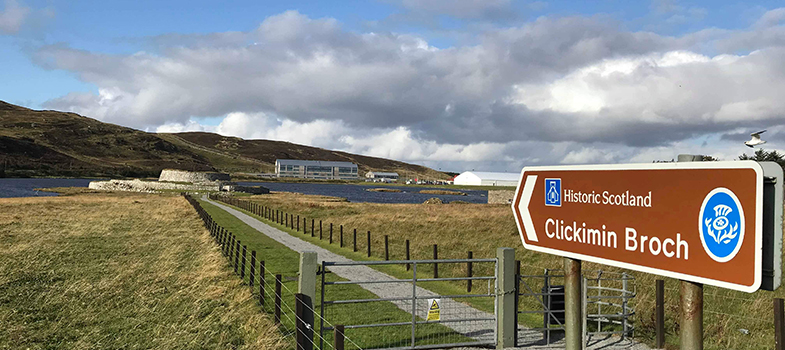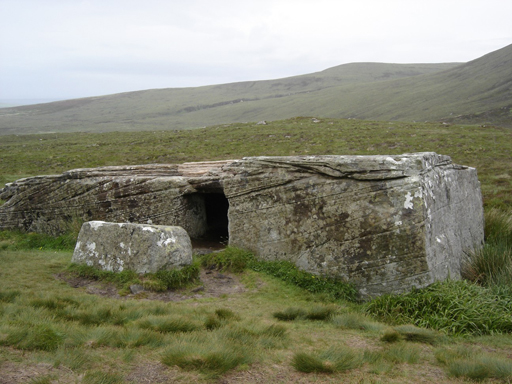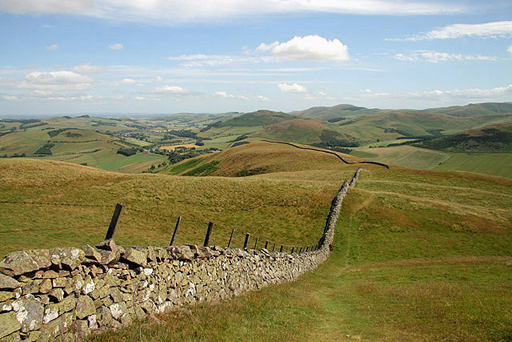14. Introductory handsel
A Scots word and example sentence to learn:
Stane [Tip: hold Ctrl and click a link to open it in a new tab. (Hide tip)]
Definition: As in English phrase stane and lime, masonry, masoned stone. Generally, Scottish forms and usages of Eng. stone. Adj. stanie, stan(e)y etc.
Example sentence: “He’s gaun tae bigg a dyke wi aw thae stanes ower there.”
English translation: “He’s going to build a wall with all those stones over there.”
Activity 2
Click to hear the sentence above read by a Scots speaker.
You can then make your own recording and play it back to check your pronunciation.
Transcript
Listen
He’s gaun tae bigg a dyke wi aw thae stanes ower there.
Model
He’s gaun tae bigg a dyke wi aw thae stanes ower there.
Go to the Dictionary of the Scots Language for a full definition of the word
Language Links
The Scots stane and the English ‘stone’ are cognates, which means that they come from a common ancestor, the Old English stān. Scots is a Germanic language, so it has many cognates with languages such as German, Dutch or Swedish. Stane is one of such words – notice the German equivalent ‘Stein’ and the Dutch ‘steen’.
Note that the word stane, like many other words in Scots and English, can be used as a noun, verb and in combination with other words e.g. stane-deif, drystane dyke, chuckie-stane etc. Stane can also refer to a mass of rock, to large boulders or smaller stones, pebbles and pieces of rubble. The picture shown, for example, is of the Dwarfie Stane, a megalithic chambered tomb carved out of a large block of sandstone on the island of Hoy in Orkney.
Related word:
Definition: A low wall made of stones, turf, etc., serving as an enclosure.
Example sentence: “Geen doon yun broo an ower the dyke.”
English translation: “Go down that hill and over the wall.”
Activity 3
Click to hear the sentence above read by a Scots speaker.
You can then make your own recording and play it back to check your pronunciation.
Transcript
Listen
“Geen doon yun broo an ower the dyke.”
Model
“Geen doon yun broo an ower the dyke.”
Go to the Dictionary of the Scots Language for a full definition of the word
Introduction


